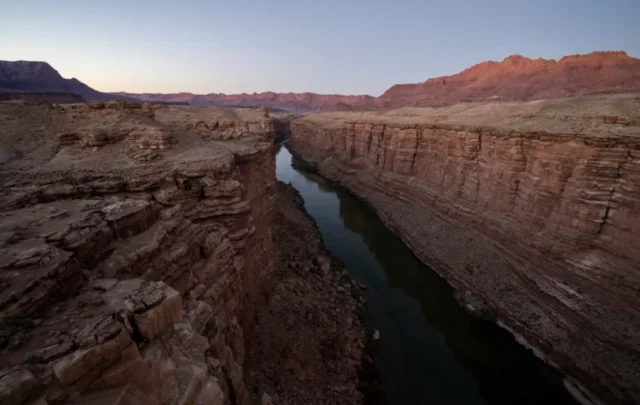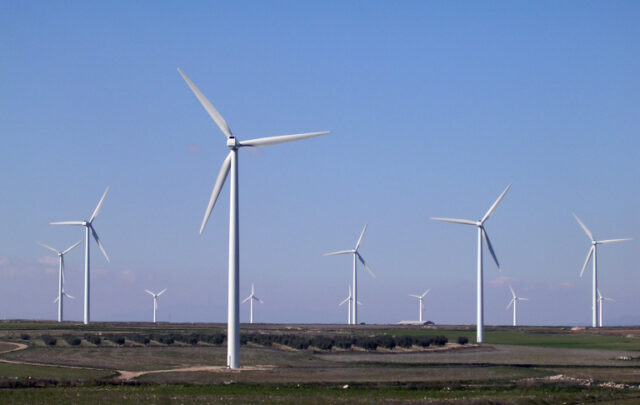As a Sing Tao Daily headline reported on the paper’s front page, President Bush and Vice President Dick Cheney met with China’s foreign minister in Houston earlier this month, after former President Ronald Reagan’s funeral.
But, aside from noting that China President Hu Jintao had made Foreign Minister Li Zhaoxing his personal representative to the funeral, the Chinese-language newspaper wrote: “Other than this, we don’t know what they talked about.”
One among several peculiarities of the June 12 meeting in Houston was that all three could have talked at one point or another during the five days the Reagan funeral lasted. In fact the media were summoned to the Houston airport only to be told that the threesome had nothing to say. Another peculiarity was that the U.S. and Chinese media were repeatedly told that Foreign Minister Li had separate meetings with Bush and Cheney.
Just a short time before the meeting Foreign Minister Li had given a speech in China in which he said: “the common interests of China and the United States are on the increase rather than on the decrease.”
On May 18, Assistant Secretary of State John Wolf told the Congress that United States played an active role in supporting China’s bid to join the Nuclear Supply Group (NSG). This is an example of growing Sino-American co-operation on the world scene.
Why would the threesome have come to Houston, the center of the U.S. oil trade? The main reason could have been to send a signal to the world that the United States and China are working together on their respective fossil fuel policies. Why did they meet in Houston?
A growing trend on the world scene means that there is a reason for President Bush, Vice President Cheney and Foreign Minister Li to make contact in Houston. The reason is that and more terrorist attacks are being aimed at oil personnel and infrastructure. And, while most of the victims are U.S. personnel, Britons and Iraqis, terrorists have also been turning their weapons against Chinese.
Eleven Chinese engineers and workers were killed in the northern Afghan town of Kunduz. They had just arrived to begin the Kunduz section of a road they had been building for some months. German soldiers under NATO command have been protecting the Kunduz sector for many months. The Chinese who are known for their road-building capability operate under a United Nations contract.
The Kunduz authorities have not accused any group that might have killed the Chinese. Part of the reason may be that the region, though in northern Afghanistan, is mostly Pashtun, who were settled there by successive regimes. And Pashtuns are still a thin majority of Afghanistan’s total population. In the southern provinces, where Pushtuns prevail, the revived Taliban have been killing foreigners with enough frequency that some international agencies have shut down their operations.
Earlier this year three Chinese engineers and workers were killed in the Pakistani LNG (Liquified Natural Gas) Arabian Sea port of Gwarda. Gwarda is located close to the Iranian border and able to pipe LNG from Turkmenistan. This Central Asian republic is reputed to have the world’s greatest reserves of natural gas.
In oil-rich Sudan, Chinese oil infrastructure projects have been going for over a decade. In fact there are good grounds for believing that Chinese oil companies in Sudan have long collaborated with U.S. oil companies who were barred by Washington D.C. from working in Sudan and other “rogue states.” The Chinese built many roads and a 1,000-mile pipeline that went from Sudan’s southern oil fields to the Red Sea port of Port Sudan.
Now that a peace treaty has been signed between the government and the rebels, the Anglo-American oil giants want to move into Sudan but they are hesitating. On March 30, two Chinese workers were abducted and killed. Later two more were abducted but lived.
The United States consumes at least 25 percent of the world’s fossil fuels. China’s lickety-split economic growth is rapidly catching up with that figure. Many in the United States fear China, but others take the view that if it weren’t for China our shopping malls — stocked by merchandise manufactured in China — would crumble into dust.
Ever since Nixon broke down the walls separating the United States and China, every single president has, in the end, taken a friendly posture vis-à-vis China.
What they likely talked about was oil, even if the larger policy picture and the question of Taiwan were also discussed.
If the two countries have agreed to synchronize their fossil fuel policy and coordinate security for oil workers then Foreign Minister Li’s talk with Vice President Cheney may have even greater weight than his talk with President Bush. It’s only been a month or so since Cheney visited China. As is the case with the peculiar Houston meeting, so was Cheney’s visit to China peculiar.
China is now a world power and its sphere of influence includes the oil-rich Middle East. Earlier, terrorists killed an Italian engineer but released South Korean, Chinese and Japanese hostages. Now, the terrorists are killing people from these three economically booming countries. It looks like, up to the transfer of Iraqi sovereignty to Iraqis June 30 and beyond, terrorists are going to be targeting civil and military personnel from these five super-advanced countries: the United States, Britain, China, Japan and South Korea.
The Cheney-Li talks may have focused on how the engineers and technicians from these five countries can be protected. To get a sense of how huge a task these two men talked about is that Saudi Arabia, the world’s biggest oil power, alone employs 30,000 foreign workers





